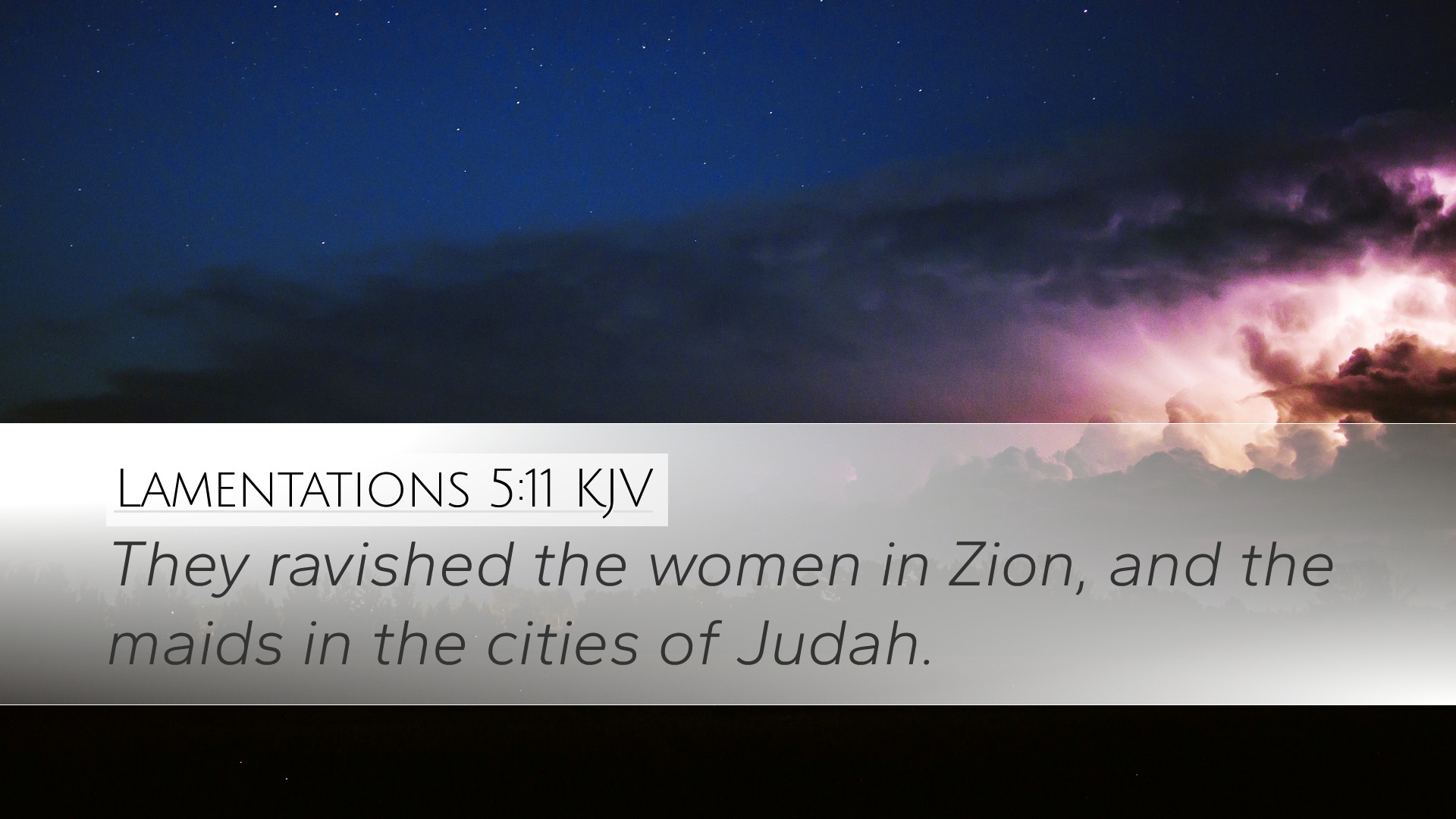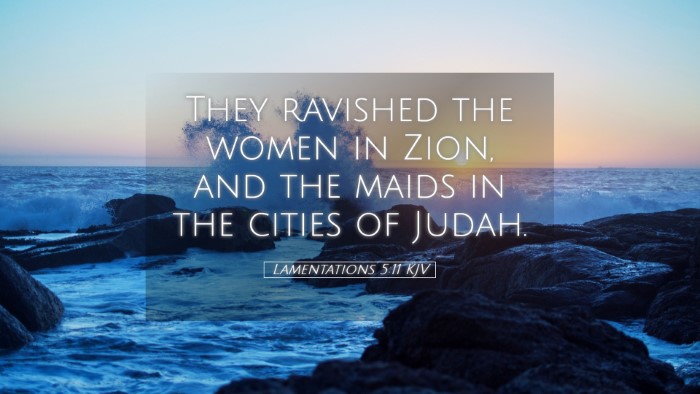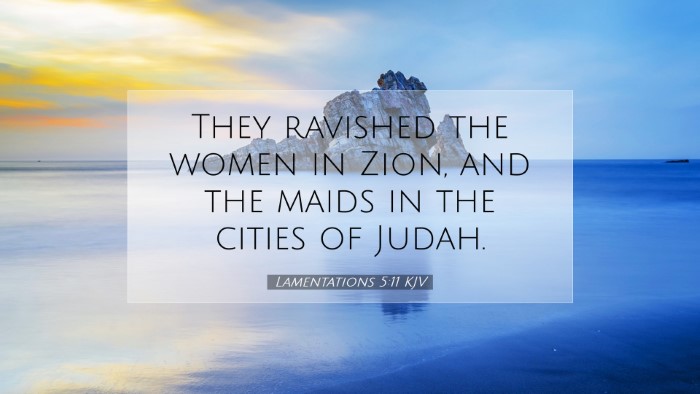Lamentations 5:11 - A Commentary
Bible Verse: Lamentations 5:11 - "They ravished the women in Zion, and the maids in the cities of Judah."
Contextual Overview
The Book of Lamentations, traditionally attributed to the Prophet Jeremiah, expresses profound sorrow over the destruction of Jerusalem and the subsequent suffering of its people. Chapter 5 serves as a poignant appeal for restoration and remembrance amidst the ruins of the city. The verse in question addresses a particularly grievous aspect of the suffering endured by the people of Judah.
Commentary Insights
-
Matthew Henry's Commentary
Henry emphasizes the shame and indignity suffered by the women of Zion. This act of violence against women is indicative of a broader societal collapse. He reflects on how the dishonor inflicted upon these women signifies spiritual degradation and the loss of God’s protection over His people. He notes that such actions are not merely social evils but represent the corporate suffering due to the collective sins of Israel.
-
Albert Barnes' Notes
Barnes provides a detailed analysis of the historical context surrounding this verse. He points out that the ravaging of women is emblematic of the complete moral decay amidst the siege and aftermath of Jerusalem's fall. He links this to the covenantal curses that befall a people who turn away from God, emphasizing that the calamities faced are not random but are direct consequences of their disobedience.
-
Adam Clarke's Commentary
Clarke delves into the Hebrew text, underscoring the starkness of the language used in this verse. He interprets the term "ravished" as an indication of extreme violence and violation of dignity. Clarke elaborates on the significance of the mention of both "women" and "maids," suggesting that the devastation impacted every layer of society, emphasizing the depth of the tragedy. He notes that this crisis of morality and sanctity calls for deep introspection regarding the societal values during the time.
Theological Implications
The implications of Lamentations 5:11 extend far beyond its immediate historical context. The act of violence committed against women serves as a reminder of the vulnerability of society in times of moral and spiritual decline. Many interpreters highlight that this lamentation can serve as a modern reflection of how sin can lead to societal destruction and the loss of fundamental human values.
This verse also opens discussions regarding the role of women in society, both in ancient times and today. The suffering of these women symbolizes the broader impact of sin on family and community structures. Thus, it calls for a renewed commitment to the protection and dignity of all individuals, especially the most vulnerable.
Pastoral Applications
For pastors and ministry leaders, this verse serves as a compelling call to action. The realities depicted in Lamentations 5:11 highlight the importance of advocating for justice, protection, and care for those who are marginalized and oppressed. It underlines the critical need for churches to be places of refuge and advocacy for those who suffer.
Moreover, this lamentation invites the congregation to engage in prayers of intercession, seeking God’s mercy and restoration not just for themselves but for their communities. It encourages an honest confrontation of the realities of sin within society, and a corporate acknowledgment of the need for God’s grace to heal and transform.
Conclusion
Lamentations 5:11 encapsulates a moment of profound despair that resonates through generations. The insights drawn from Matthew Henry, Albert Barnes, and Adam Clarke illuminate the significance of this verse not only in its historical context but also in its application to contemporary issues. As we reflect on this text, we are reminded of the relentless pursuit of justice, the value of human dignity, and the imperative of seeking God’s restoration in a fractured world.


